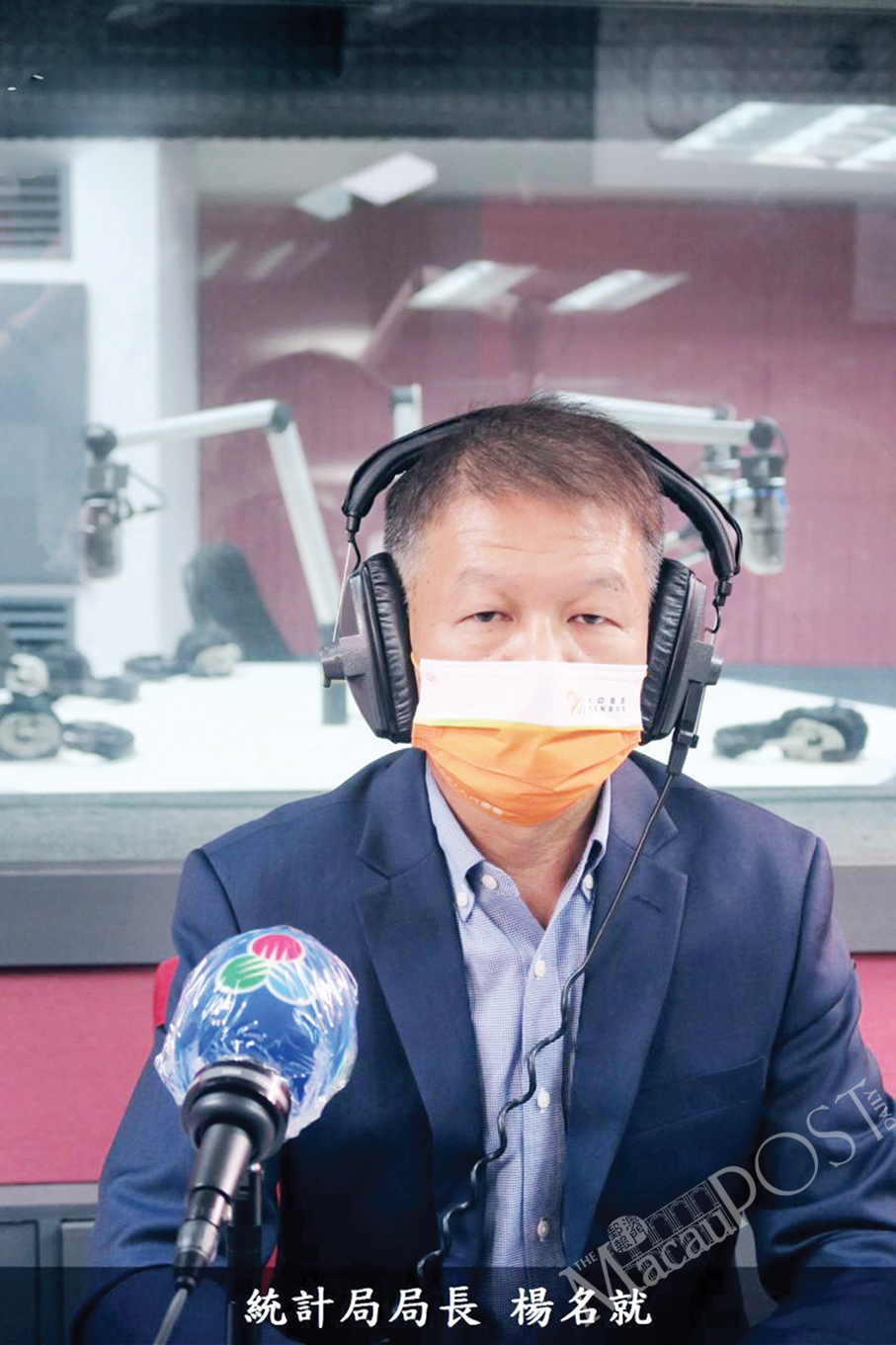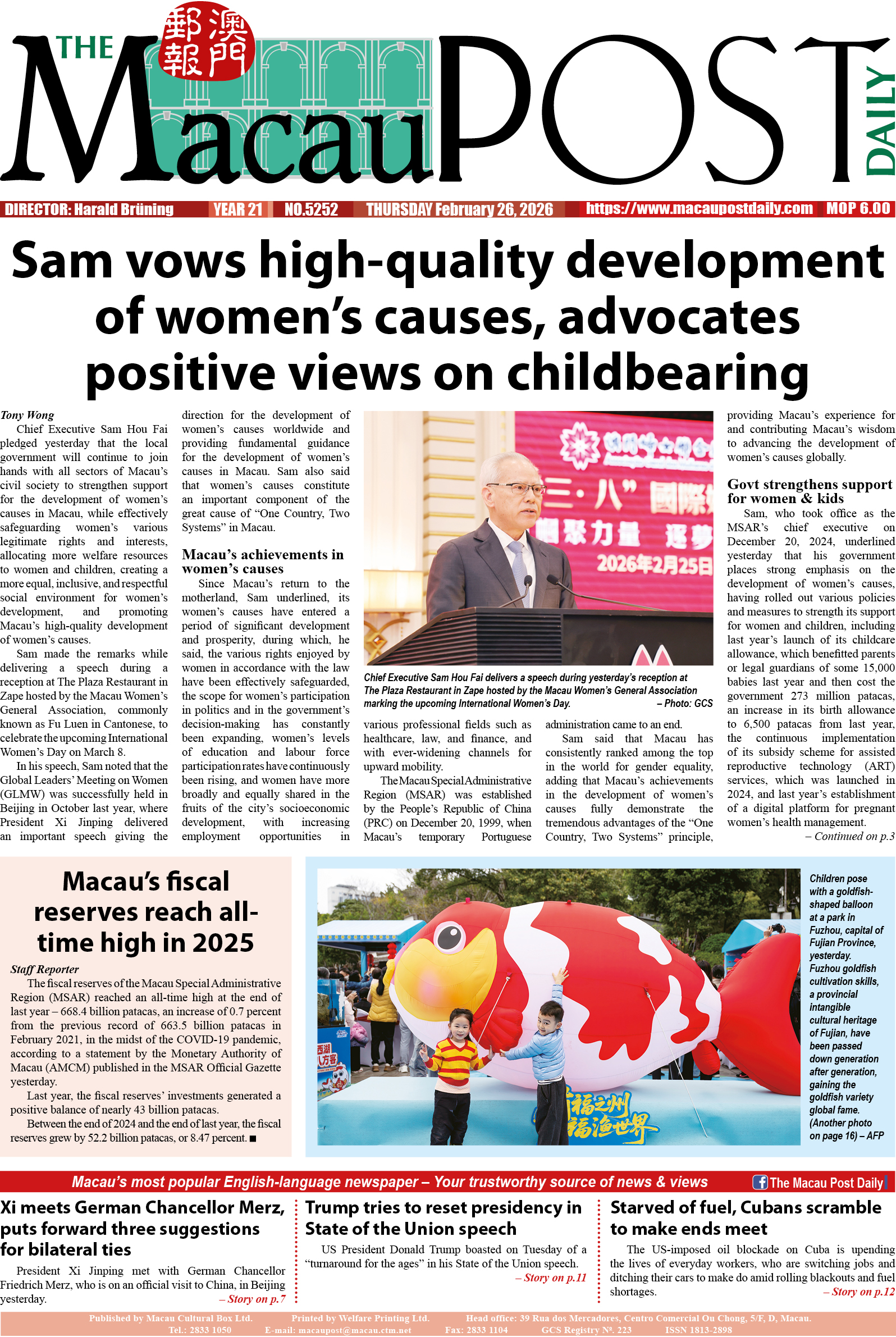Statistics and Census Bureau (DSEC) Director Ieong Meng Chao said yesterday that the response to the 2021 Population Census had reached 58 percent by yesterday, pointing out that the collection period has been extended until Saturday.
Ieong made the remarks yesterday during a current affairs radio phone-in programme on the Chinese-language radio channel of public broadcaster TDM.
Ieong said that due to the novel coronavirus pandemic development in Macau, the bureau decided to extend its collection period to August 28, adding that since Monday census takers have been visiting local households. He noted that by last Saturday the response rate had stood at 52 percent, adding that in two days of census takers visiting residents’ homes the rate had already increased to 58 percent. He said he believed that the response rate would “accelerate” in the next few days.
Ieong also said that it was more difficult to conduct the survey in low-rise buildings that do not have management offices as in that case census takers are often unable to enter the building. He added that he hoped residents would answer the door if the doorbell rings. He also underlined that census takers will leave a letter on the door or in the letter box of those households that they are unable to contact, so that residents can schedule a suitable time for an in-person survey.
When asked whether the bureau will extend the collection period again if the response ratedoes not reach 85 percent by Saturday, Ieong said that the probability of prolonging the period is low because the bureau only has a limited number of census takers available.
Asked about who is covered by the 2021 Population Census, Ieong said that it does not include Macau residents who live in the mainland. He noted that there are around 13,500 Macau residents living in the mainland but working or studying in Macau, adding that those are not included in the survey.
A resident called in and asked if a resident holds multiple properties, does he or she need to fill in the survey multiple times? Ieong replied that the resident only needs to fill in the census form for the flat where he or she spends the most time, indicating how many people are living there. He also said that those residents need to call the bureau to inform them whether the other properties are being lived in or are vacant, but they do not need to fill in the form again.
Meanwhile, Ieong noted that in the past 30 years, the population of Macau increased from 300,000 to 680,000 people. The statement said the population increase was faster than in neighbouring regions. Ieong also said that until the end of 2020, Macau’s male and female ratio was 46.8:53.2, pointing out that there are more females in Macau because women tend to live longer than men and also because more female than male non-resident workers (the so-called blue-card holders) are in Macau.
Ieong said that according to the data, Macau has obviously an ageing population, pointing out that the number of senior citizens (aged 65 or above) increased from 7.2 percent in 2011 to 12.9 percent in 2020. He said he believed that the number of senior citizens will reach 14 percent within the next two to three years.
Ieong also said that in the survey this year, the bureau added a question about senior citizens’ ability to take care of themselves, including who takes care of them, where they live, and whether there is a lift in their buildings. He said he hoped the data would be useful for the government’s policy planning for civil society and senior citizens’ services.

Statistics and Census Bureau (DSEC) Director Ieong Meng Chao attends a phone-in radio programme on the Chinese-language radio channel of public broadcaster TDM yesterday. Photo courtesy of TDM









